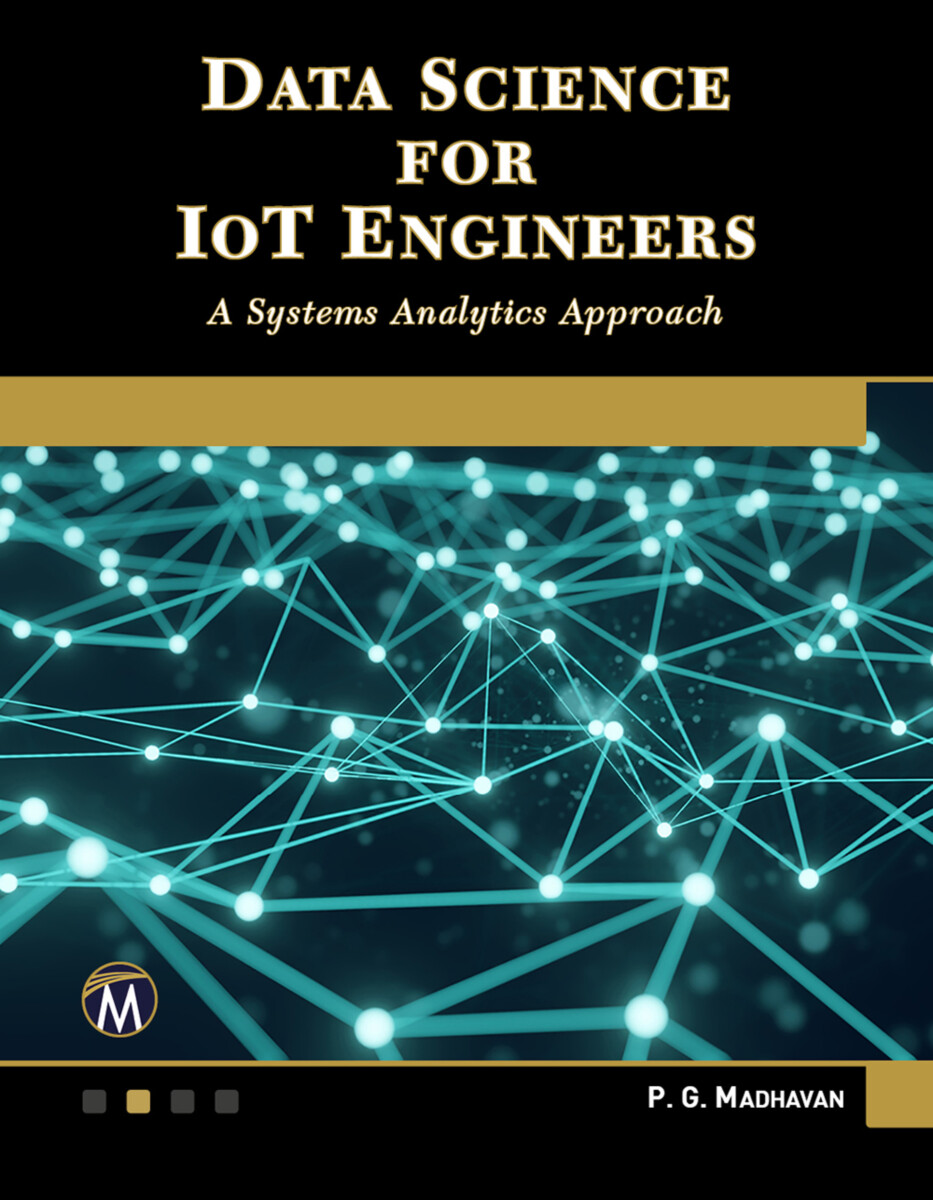Data Science for IoT Engineers
A Systems Analytics Approach
- Publisher
Mercury Learning and Information - Published
27th December 2021 - ISBN 9781683926429
- Language English
- Pages 158 pp.
- Size 7" x 9"
- Request Exam Copy
E-books are now distributed via VitalSource
VitalSource offer a more seamless way to access the ebook, and add some great new features including text-to-voice. You own your ebook for life, it is simply hosted on the vendor website, working much like Kindle and Nook. Click here to see more detailed information on this process.
- Publisher
Mercury Learning and Information - Published
11th November 2021 - ISBN 9781683926405
- Language English
- Pages 158 pp.
- Size 7" x 9"
- Request E-Exam Copy
Library E-Books
We are signed up with aggregators who resell networkable e-book editions of our titles to academic libraries. These editions, priced at par with simultaneous hardcover editions of our titles, are not available direct from Stylus.
These aggregators offer a variety of plans to libraries, such as simultaneous access by multiple library patrons, and access to portions of titles at a fraction of list price under what is commonly referred to as a "patron-driven demand" model.
- Publisher
Mercury Learning and Information - Published
11th November 2021 - ISBN 9781683926412
- Language English
- Pages 158 pp.
- Size 7" x 9"
This book introduces the concepts of data science to professionals in engineering, physics, mathematics, and allied fields. It is a workbook with MATLAB code that creates a common framework and points out various interconnections related to industry. This will allow the reader to connect previous subject knowledge to data science, machine learning, or analytics and apply it to IoT applications. Part One brings together subjects in machine learning, systems theory, linear algebra, digital signal processing, and probability theory. Part Two (Systems Analytics) develops a “universal” nonlinear, time-varying dynamical machine learning solution that can faithfully model all the essential complexities of real-life business problems and shows how to apply it.
FEATURES:
- Develops a “universal,” nonlinear, dynamical machine learning solution to model and apply the complexities of modern applications in IoT
- Covers topics such as machine learning, systems theory, linear algebra, digital signal processing, probability theory, state-space formulation, Bayesian estimation, Kalman filter, causality, and digital twins.
Part One
1: Machine Learning from Multiple Perspectives
2: Introduction to Machine Learning
3: Systems Theory, Linear Algebra, and Analytics Basics
4: Modern Machine Learning
Part Two: Systems Analytics
5: Systems Theory Foundations of Machine Learning
6: State Space Model and Bayes Filter
7: The Kalman Filter for Adaptive Machine Learning
8: The Need for Dynamical Machine Learning
9: Digital Twins
Epilogue: A New Random Field Theory
Index
P. G. Madhavan, Ph.D.
P. G. Madhavan, Ph.D., has an extensive background in the Internet of Things (IoT), machine learning, digital twins, and wireless technologies in roles such as Chief IoT Officer and IoT Product Manager at large corporations (including Rockwell Automation, GE Aviation, and NEC).


